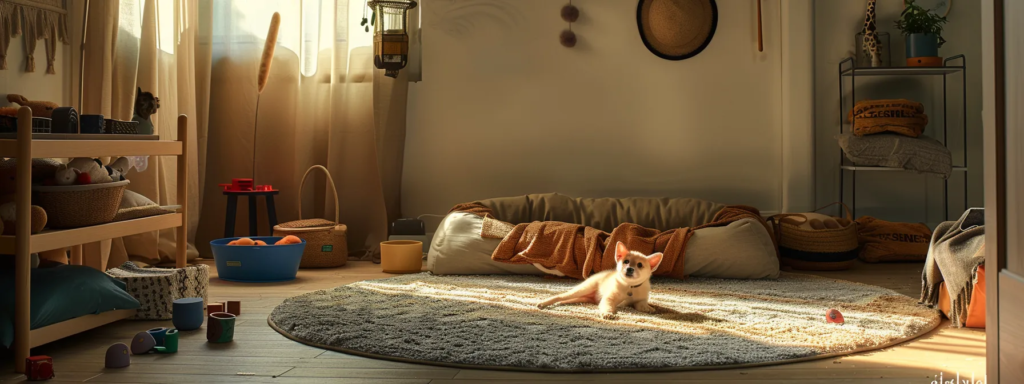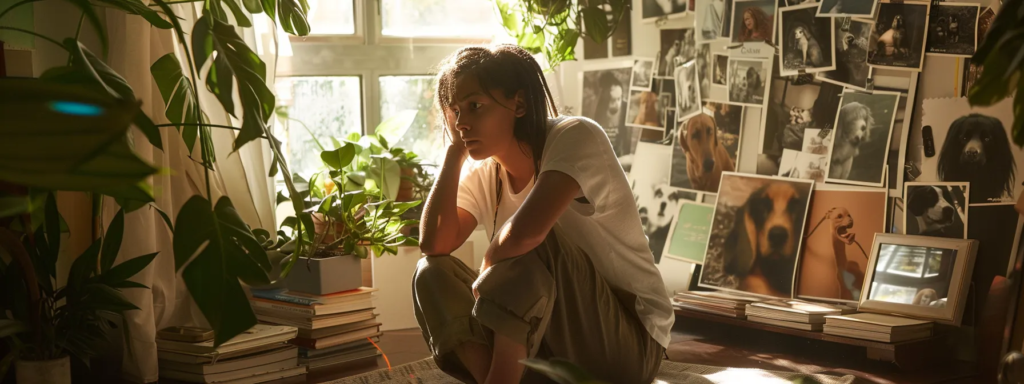Introducing a puppy into your family is a joyous and significant event that can lead to years of companionship and happiness. However, it’s vital to approach this decision with a clear understanding of the responsibilities and changes that come along with a new pet. Being fully aware of the various facets of dog ownership ensures that you are prepared for this new chapter in your life. Read on to explore some of the key considerations you need to be aware of before bringing a puppy home. Below, we outline the essential steps to ensure you and your home are ready for the arrival of your new furry friend.
Preparing Your Home for a Puppy’s Arrival

Preparing your home for a new puppy is much like toddler-proofing. Remove potentially harmful items such as chemicals, small objects, and toxic houseplants. Set up a safe, comfortable area for your puppy to retreat to and feel secure. Ensure cleanliness and maintenance by using puppy pads and choosing easy-to-clean flooring, as accidents are common during house training. Consider adding living room fake plants to avoid the frustration of your real plants being chewed up.
Before your puppy arrives, set up a cozy bed, food and water bowls, and plenty of toys in their designated space. Thoroughly puppy-proof both indoor and outdoor areas, checking for escape routes and hazards. Prepare an emergency contact list with your vet, local animal hospital, and poison control, and keep it handy on your fridge or in an easily accessible spot. Consider having an immune system booster for dogs on hand to support your puppy’s health. This preparation ensures you’re ready for any unexpected situations.
Understanding the Financial Responsibility of Owning a Dog
Dog owners should anticipate ongoing expenses beyond adopting or purchasing a puppy, including regular veterinary care, quality food, flea and tick prevention, heartworm medication, grooming, and supplies like beds, toys, and leashes. Emergency veterinary visits can be costly, so budgeting or investing in pet insurance is crucial.
Quality food is essential for a puppy’s nutritional health, as their dietary needs change over time. Other expenses include flea and tick prevention, heartworm medication, grooming, and dog-walking services or boarding facilities. Immune system boosters can support a puppy’s natural defenses and make their transition to a new home stress-free. Pet owners should consider these expenses to ensure their dog’s well-being and well-being.
Assessing Your Lifestyle and Time Commitment for a New Puppy
Introducing a puppy into your life involves more than just providing love and shelter; it involves integrating them into your daily routine. Assessing your current lifestyle, including work, social activities, and other commitments, is crucial for a well-adjusted puppy. Time commitment is crucial for training and bonding, and consider if you have the flexibility to involve your puppy in daily activities.
Project your future life for larger breeds, as they may require more space and exercise. Consider your living environment, whether it’s a spacious backyard or an apartment, as creating a safe, welcoming space is crucial for your puppy’s development and happiness.
Choosing the Right Breed to Fit Your Living Situation

When choosing a dog breed, consider factors like home size, outdoor space, and dog energy level. Some breeds require more exercise, while others may have lower activity needs. Research breed-specific temperament and care requirements, consult breeders, online research, and veterinarians. Consider the family dynamic, as choosing a sociable and friendly breed is crucial for a harmonious living situation.
Spend time with different puppies to find one that suits your temperament and lifestyle. Remember that each dog has a unique personality, and the individual connection you make with a puppy can be just as important as the breed you choose. This will help you make an informed decision about your new furry friend.
The Importance of Socialization and Training for Your Puppy
Socialization is crucial for raising a well-behaved and confident dog. Exposing your puppy to different people, places, and situations helps them become comfortable with the world around them. Positive experiences in the first few months can shape their behavior for life. Training establishes a bond between you and your puppy, instilling good manners and communication. Positive reinforcement techniques strengthen trust.
Set aside time each day for training sessions, ensuring consistency in understanding expectations and boundaries. Training should continue into adulthood to enrich the relationship and keep skills sharp. Enrolling in puppy classes or seeking professional help if needed can help create a well-trained dog, which is happier and more suited to your home and community.
Overall, the process of adopting a puppy involves a combination of excitement and responsibilities. It involves assessing your lifestyle, understanding financial responsibilities, preparing your home, choosing the right breed, and focusing on socialization and training. Thorough preparation leads to a smoother transition and a happier life for both you and your new pet. Enjoy the rewarding experience and the bond that will develop between you and your new pet.















